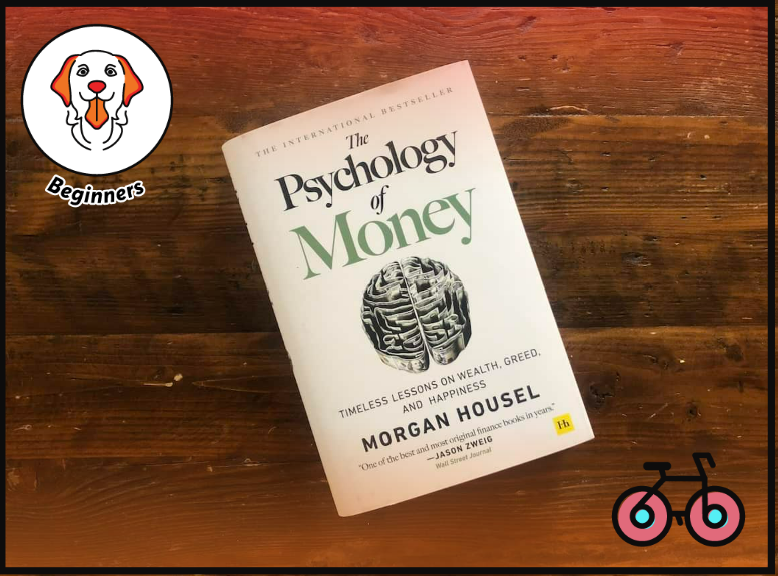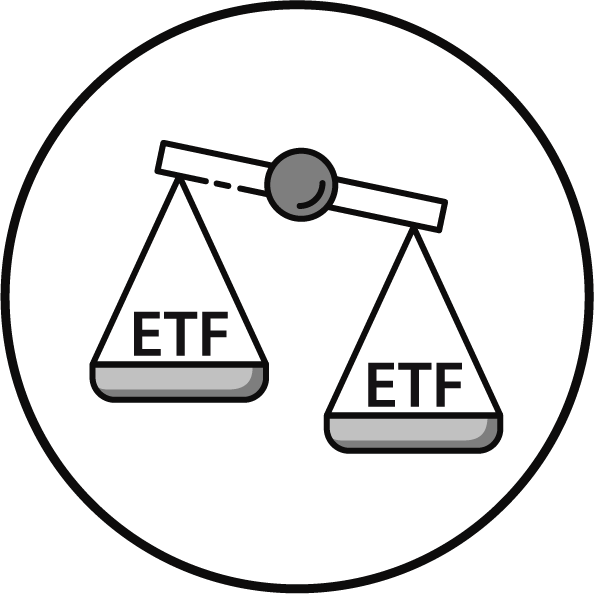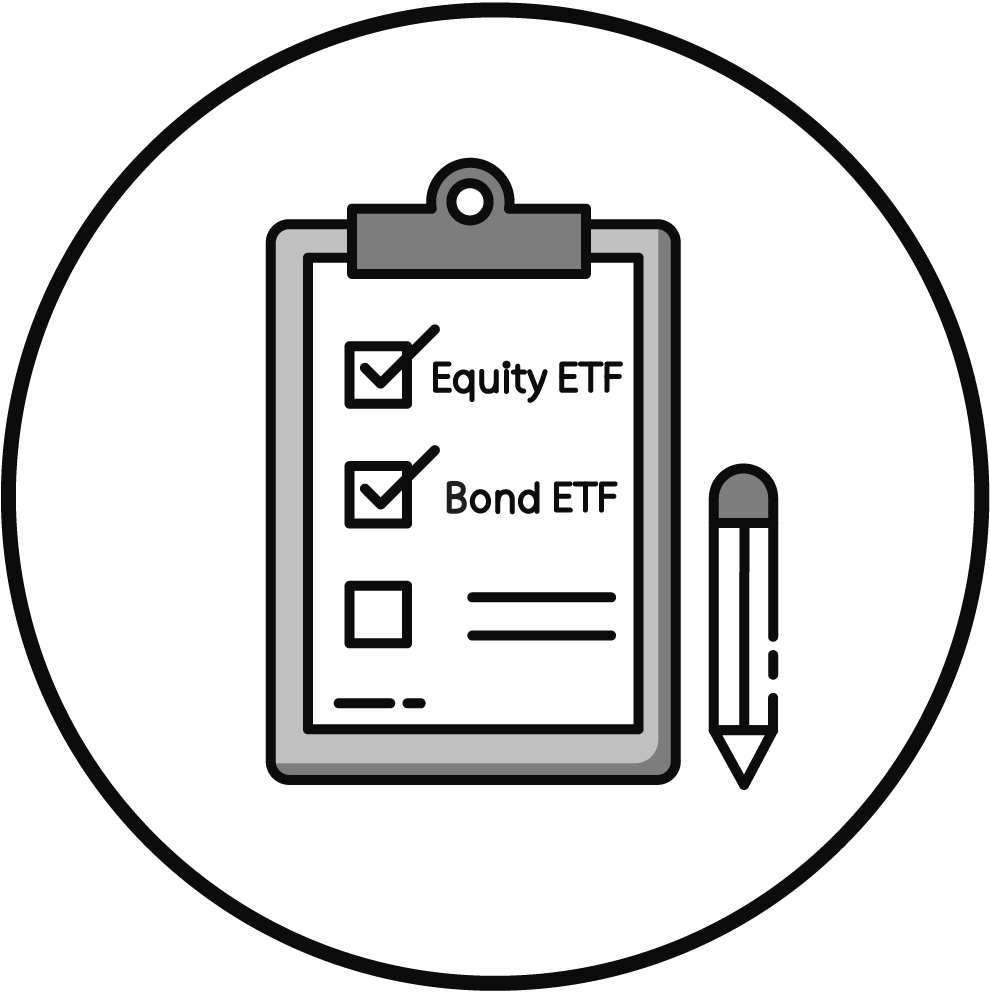The Psychology of Money – Timeless Lessons on Wealth, Greed, and Happiness (Book Review)

The Psychology of Money: Timeless Lessons on Wealth, Greed, and Happiness by Morgan Housel is a fascinating insight into the “why” behind many of our most important financial decisions.
The author is an expert in behavioral finance and history and an avid proponent of financial independence.
In his book, he takes us through some of the most important lessons he’s learned about why we act the way we do and how to think positively about wealth and investing.
KEY TAKEAWAYS
- Housel’s book doesn’t aim to teach you the specifics of investing or cover different products you might want to use. Instead, the main aim is to have a look at the reasons why you might think about money the way you do.
- In a remarkably non-judgmental way, the author explains how our background affects our decisions and why something another person does might be perfectly rational to them but make no sense to you.
- He also goes into several strategies and ways of thinking about finances that can help you improve your situation and use psychology to your advantage.
- As the title states, the book is truly timeless. What’s more, the vast majority of the ideas are also “location-less”, which means that you can implement them no matter which country you live in.
Here is the full analysis
Richard Feynman, the great physicist, once said, “Imagine how much harder physics would be if electrons had feelings.” Well, investors have feelings
Morgan Housel
Morgan Housel Interview on the Bogleheads on Investing Podcast
It's all in your head
The Most Important Lesson
As a member of the financial independence community, making good financial decisions is reasonably straightforward for me.
After all, I am earning enough to save regularly and have trained myself to implement positive financial habits for years.
Sometimes, it’s hard for me to understand why people make decisions that harm them in the long run.
It’s easy to slip into a judgmental pattern and start thinking “I am doing a better job than them.”
The Psychology of Money reminds us that everyone makes decisions according to what makes sense to them at the time.
Someone who grew up during World War II is going to have a very different mindset to someone who was a teenager in the 70s or 80s.
Neither of these people’s opinions are wrong, even though they might not understand where the other one is coming from.
This level of humility can help us all to have more productive conversations and learn to collaborate better.
Concepts Compatible with Financial Independence
Morgan Housel is a great proponent of financial independence.
He states that the best thing you can buy with your money is freedom.
Being able to decide what to do, when to do it, for how long, and with whom is the best guarantee of happiness you can find.
You’re unlikely to be content if you’re limited because of a need for more money.
He dedicates a chapter to explaining that wealth is what you don’t see: the funds not spent on consumer goods, which are now invested in appreciating assets for the rest of your life.
On Saving and Spending
We often save for a specific purpose: a holiday, a new car, a home, or retirement.
But Housel believes that we should save even when we don’t have a goal in mind. This is because the future is unpredictable, and we never know what’s coming next.
The bigger our margin of safety, the more likely a successful outcome becomes.
He reminds us that not only the world around us, but also our future selves, aren’t easy to predict.
We often underestimate how much our needs and desires change.
That’s why saving regularly and as early as possible can maximize our chances of always having enough.
Spending, on the other hand, doesn’t make us happy.
Often, we buy something to impress others or to gain respect.
But when you see someone with a flashy car, you don’t really look at the driver.
Instead, you focus on the car. You might wonder whether you should also get one to impress others, or you imagine what it would be like to drive it.
Thus, the consumer’s needs have not been met through their purchase.
They aren’t being admired, even though they might believe they are.
It is much easier to gain admiration and respect by doing something kind or demonstrating humility and empathy.
A Positive Relationship with Risk
Many of us see risk as a negative, but it is a natural side-effect of reward.
Housel advises us to view economic downturns and a loss in our stocks’ value as the fee we pay for success, not a punishment or a fine for doing something wrong.
That way, we can simply accept it and not try to avoid it in the future.
Staying invested is the most important prerequisite for success because a few key events, called tail events in the book, will determine the majority of our outcome.
For example, pulling money from our investments during a downturn can negate all our previous financial success, while keeping our cool and adding more money can set us up for long-term achievement.
I really enjoyed this section of the book because I have several friends who are risk-averse and therefore refuse to invest.
Framing downturns in this way may help them to view the stock market in a more positive light.
Can We Expect to Be Rational?
Given the different narratives we have about money and our complex human psychology, can we expect to be rational investors?
Morgan Housel argues that we can’t.
However, we can aim to be reasonable, which is just as good.
Financial decisions aren’t made in a vacuum but with our individual networks and experiences in mind.
For example, it would have been far superior for the author to invest his money instead of paying off his mortgage, but he did the latter for emotional reasons.
Having a paid-off primary residence gives him a sense of freedom and independence, which is extremely valuable to him and his spouse.
Similarly, he keeps a lot of cash. Although the return is poor, having this liquidity can be worth infinitely more when it prevents you from pulling out your money in a downturn.
Housel argues that these suboptimal financial decisions are okay and that we should do what allows us to sleep at night.
Again, he comes back to the idea of humility and acceptance. Everyone’s story is different, so you shouldn’t judge someone else’s decisions by your own needs and desires.
Leading By Example
It is particularly noteworthy that the author takes us through his own financial situation in the last chapter.
Unlike many professionals who don’t practice what they preach, he implements all the strategies in his book to optimize his choices, both financially and psychologically.
When explaining how he has chosen to invest, he remains free of judgment.
For example, he states that he is invested in index funds because he believes that they will allow him to achieve his goals.
However, he acknowledges that some others will attempt to beat the market and that this is a valid choice, as well.
This level of openness and personal touch helped me to accept his advice more fully.
SHOULD YOU BUY THIS BOOK?
Our overall rating comprises five key considerations, including suitability for beginners and European and UK readers.
1. Beginner-Friendly
2. Investing Concepts
3. Investing How-to (Europe)
4. Financial Freedom Principles
5. Personal Finance Know-how
1. Beginner-Friendly
2. Investing Concepts
3.Investing How-to (Europe)
4. Financial Freedom Principles
5. Personal Finance Know-how
From Bankeronwheels.com
Get Wise The Most Relevant Independent Weekly Insights For Individual Investors In Europe & the UK
Liked the quality of our guides? There is more. Every week we release new guides, tools and compile the best insights from all corners of the web related to investing, early retirement & lifestyle along with exclusive articles, and way more. Probably the best newsletter for Individual Investors in Europe and the UK. Try it. Feel free to unsubscribe at any time.
🎁 In the first email, you can download a FREE comprehensive 2-page checklist to construct & monitor your portfolio and clean up your personal finances.
Rating justification
The Psychology of Money: Timeless Lessons on Wealth, Greed, and Happiness by Morgan Housel explains the reasons behind our financial decisions and explores how we can best use our own psychology to succeed.
Although everyone will understand the main concepts, the book is targeted at people who already have some know-how about finances and who have started their careers.
It is not meant to be a how-to guide to investing or money management, but instead, it helps us identify why we may have certain biases and work around them.
The fact that the lessons are timeless and not location-specific explains the book’s international success.
I would recommend it to everyone who is interested in personal finance and making the most of their money.
Many of the ideas presented are congruent with the financial independence movement.
What’s more, they can help you to feel more confident about your decisions, even if they aren’t 100% rational.
Undoubtedly, the best aspect of Housel’s work is the non-judgmental tone.
Reading this book can help us all to get the conversation started and respect each other’s decisions.
Good Luck and Keep’em* Rolling!
(* Wheels & Dividends)

Weekend Reading – JP Morgan Guide To Retirement

Surviving The Next Bear – Strategies To Profit From The Next Market Crash

Weekend Reading – Asset Class Returns since 1970 & Trend Following Strategies

Cracking the Code: Decoding ETF Names & Discovering Tools To Find Them

Broker Review Methodology

iWeb Share Dealing Review – Great For Inactive Investors
HELP US
🙋 Wondering why finding honest Investing Guidance is so difficult? That’s because running an independent website like ours is very hard work. If You Found Value In Our Content And Wish To Support Our Mission To Help Others, Consider:
- 📞 setting up a coaching session
- ☕ Treating us to a coffee
- 🎁 Taking advantage of our affiliate links when setting up a broker account. This doesn’t increase your costs, and we often secure exclusive bonuses for our audience.
- ❤️ Exploring Other ways to support our growth, both financially and non-financially.
DISCLAIMER
All information found here, including any ideas, opinions, views, predictions expressed or implied herein, are for informational, entertainment or educational purposes only and do not constitute financial advice. Consider the appropriateness of the information having regard to your objectives, financial situation and needs, and seek professional advice where appropriate. Read our full terms and conditions.





















